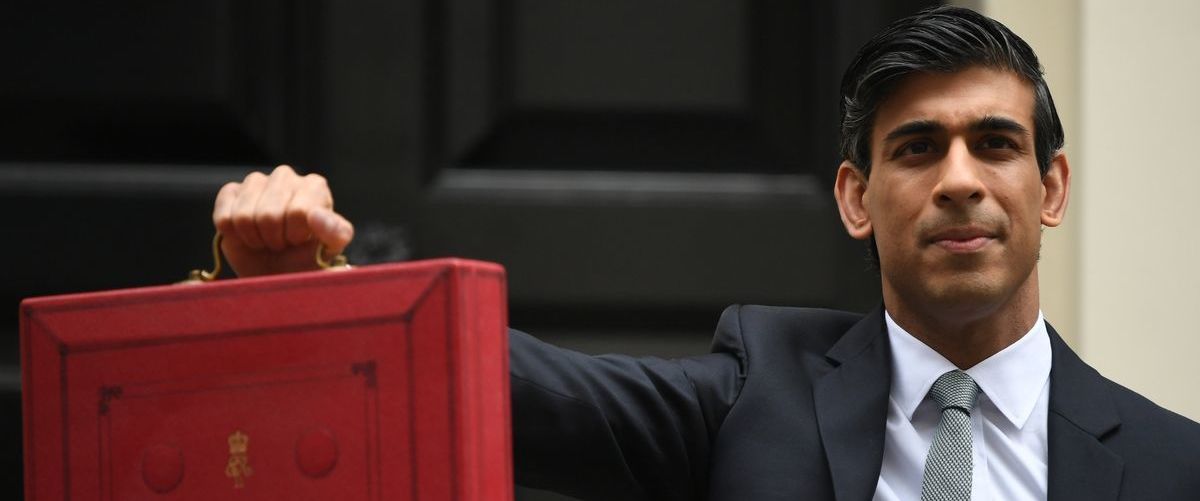Spring Budget 2021
Posted on 4th March 2021 at 18:09
The Chancellor Rishi Sunak presented his second Budget on Wednesday 3rd March 2021.
In his Budget, the Chancellor announced tax rises and freezes, incentives to spend now and tax later to kick-start UK economy to see us beyond the shadow of the coronavirus.
Rishi Sunak’s budget speech was noted as unusually short just 51 minutes which equals previous record for shortest speech in 2007 delivered by Gordon Brown. However, the 102 pages long Budget 2021 has 281 references to the word ‘tax’. Our summary of the key takeaways are listed below.
Key Points
• Personal Allowances and Tax Rates will be frozen until 2025/26; Personal Allowance will increase to £12,570 as previously announced
• Extensions to the furlough scheme to 30 September 2021
• Extensions to the Self-Employed Income Support scheme (SEISS)
• SEISS for the 4th and 5th grants will include those who became self-employed in the tax year 2019-20, provided they filed a tax return by 2 March 2021
• Further business rate relief at 100% until 30 June, then for nine months at 66%
• The Stamp Duty holiday is extended to 30 June 2021
• Corporation tax will rise to 25%
• Inheritance tax and capital gains tax will be frozen until April 2026
• 130% Super Deduction for company investment in new plant and machinery from 1 April 2021 up to 31 March 2023
• IR35 Off- Payroll Technical Changes to improve operation of the rules ahead of 6 April 2021
• R&D relief capped for SMEs at £20,000 plus three times the company’s PAYE & NICs liability
• New 3-year carry back of losses for corporation tax purposes
• New government guarantee for mortgage borrowers
• From 6 April 2021 a new UK-wide loan guarantee scheme supporting businesses’ access to loans and overdrafts open to all businesses, including those who have already received support under the existing COVID-19 guaranteed loan schemes.
• The government will provide ‘Restart Grants’ in England of up to £6,000 per premises for non-essential retail businesses and up to £18,000 per premises for hospitality, accommodation, leisure and other sectors.
• Apprentice incentive payments increased to £3,000 and extended until September 2021
• Help to Grow: Digital will help SMEs to develop digital skills with free expert training and a 50% discount on new productivity-enhancing software
• New visa reforms for highly skilled migrants
• Reform of Penalties for VAT and Income Tax Self Assessment from 1 April 2022
• VAT: No change in registration and deregistration thresholds
• SDLT and Non-resident purchasers – a 2% surcharge stamp duty from 1 April 2021 for non-resident purchasers
A short summary of key thresholds:
• Tax-free personal allowance to be frozen at £12,570 from April 2021 to 2026
• Higher rate income tax threshold to be frozen at £50,270 from April 2021 to 2026
• Capital gains tax annual exempt amount - frozen at £12,300
• Dividend allowance - the tax-free dividend allowance is unchanged at £2,000
• Corporation tax - the corporation tax rate will remain at 19% but from April 2023 the applicable corporation tax rates will be 19% and 25%.
• Entrepreneurs’ relief - The lifetime limit on gains eligible for entrepreneurs’ relief is £1m for qualifying disposals.
• Employment allowance - The allowance is £4,000 but continues to be limited to employers with an employer NIC bill below £100,000 in the previous tax year.
• Pension allowance – Annual Allowance will remain at £40,000 but from April 2021, the annual allowance for individuals with total income (including pension accrual) of over £312,000 will be £4,000.
• Class 1 National Insurance rates thresholds for 2021 to 2022:
- Lower earnings limit: £520 pm/ £6,240 pa
- Primary threshold: £797 pm/ £ £9,568 pa
- Secondary threshold: £737 pm/ £8,840 pa
- Upper earnings limit: £4,189 pm/ £50,270 pa
Personal Tax:
Rates frozen from 2021/22 to 2025/26
• Personal allowance frozen at £12,570
• Basic rate band will increase to £37,700
• Higher rate tax will be due for income exceeding £50,270
• Pensions lifetime allowance frozen at £1,073,100
Furlough scheme extension:
• 80% funding for hours not worked until the end of September.
• Employers will be asked to contribute 10% in July and 20% in August and September of the hours not worked.
Corporation Tax
1) 19% Corporation Tax Rate is set until 1 April 2022
2) 25% Corporation Tax Rate will rise to 25% from 1 April 2023
a) applying to profits over £250,000
b) small profits rate (SPR) will also be introduced for companies with profits of £50,000 or less so that they will continue to pay Corporation Tax at 19%
c) Companies with profits between £50,000 and £250,000 will pay tax at the main rate reduced by a marginal relief providing a gradual increase in the effective Corporation Tax rate
Read here the Corporation Tax charge and rates from 1 April 2022 and Small Profits Rate and Marginal Relief from 1 April 2023 tax information and impact note for more information.
Here is an example:
ABC Ltd has a profit of £90,000 for the accounting period to 31 December 2023:
- Period FY2022 – 3/12 x £90,000 @ 19% = £4,275
- Period FY2023 – 9/12 x £90,000 @ 25% = £16,875
- Marginal relief – 9/12 x £90,000 = £67,500
- Upper limited £250,000 x 9/12 = £187,500
- 3/200 x (187,500 - £67,500) = £1,800
Total: £19,350
VAT
The registration and deregistration limits will continue to be frozen for a further two years.
The government will extend the 5% VAT rate for hospitality until 30 September and then an interim rate of 12.5% will apply for a further six months until 31 March 2022.
Any business that took advantage of the original VAT deferral on VAT returns from 20 March through to the end of June 2020 can now opt to use the VAT Deferral New Payment Scheme to pay that deferred VAT in up to eleven equal payments from March 2021.
The online service is open between 23 February 2021 and 21 June 2021
Apprenticeships
The government will extend and increase the payments made to employers in England who hire new apprentices. Employers who hire a new apprentice between 1 April 2021 and 30 September 2021 will receive £3,000 per new hire.
This is in addition to the existing £1,000 payment the government provides for all new 16-18 year-old apprentices and those aged under 25 with an Education, Health and Care Plan.
You can also get help from the government to pay for apprenticeship training up to 95%.
Help to Grow: Digital
The government will launch a new UK-wide scheme in the autumn to help SMEs save time and money by adopting productivity enhancing software, transforming the way they do business. This will combine a voucher covering up to half of the costs of approved software up to a maximum of £5,000, and free impartial advice, delivered through an online platform.
Housing Support
The government will introduce a new mortgage guarantee scheme in April 2021.
This scheme will provide a guarantee to lenders across the UK who offer mortgages to people with a deposit of just 5% on homes with a value of up to £600,000.
SDLT
Nil-rate band will remain £500,000 until 30 June 2021
From 1 July 2021 to 30 September 2021 – reduced to £250,000
Reduced back to £125,000 from 1 October 2021
From 1 April 2021, a new measure of SDLT 2% surcharge on purchases of dwellings made by non-resident purchasers, including certain UK resident companies controlled by non-residents.
IR35 Off- Payroll Technical Changes
As previously announced on 12 November 2020, a technical change will be legislated for in Finance Bill 2021 to address an unintended widening of the definition of an intermediary in the off-payroll working rules legislation, where it is a company.
Reform of Penalties
The government will reform the penalty regime for VAT and Income Tax Self Assessment to make it fairer and more consistent. The new late submission regime will be points-based, and a financial penalty will only be issued when the relevant threshold is reached. The new late payment regime will introduce penalties proportionate to the amount of tax owed and how late the tax due is.
These reforms will come into effect: for VAT taxpayers from periods starting on or after 1 April 2022, and for taxpayers in Self Assessment with business or property income over £10,000 per year from accounting periods beginning on or after 6 April 2023, and for all other taxpayers in Self Assessment from 6 April 2024.
Key Dates:
11 March 2021 - An updated Finance Bill 2021 will be published with the Chancellor’s announcements.
23 March 2021 - The government will publish a range of tax consultations
In Conclusion
The Chancellor's 2021 Budget was ambitious, but the light at the end of the tunnel is hopefully getting brighter with the measures introduced to boost the UK economy and investments.
For further information, call us on 0333 772 7753 or email [email protected]

Tagged as: Spring Budget 2021
Share this post:



